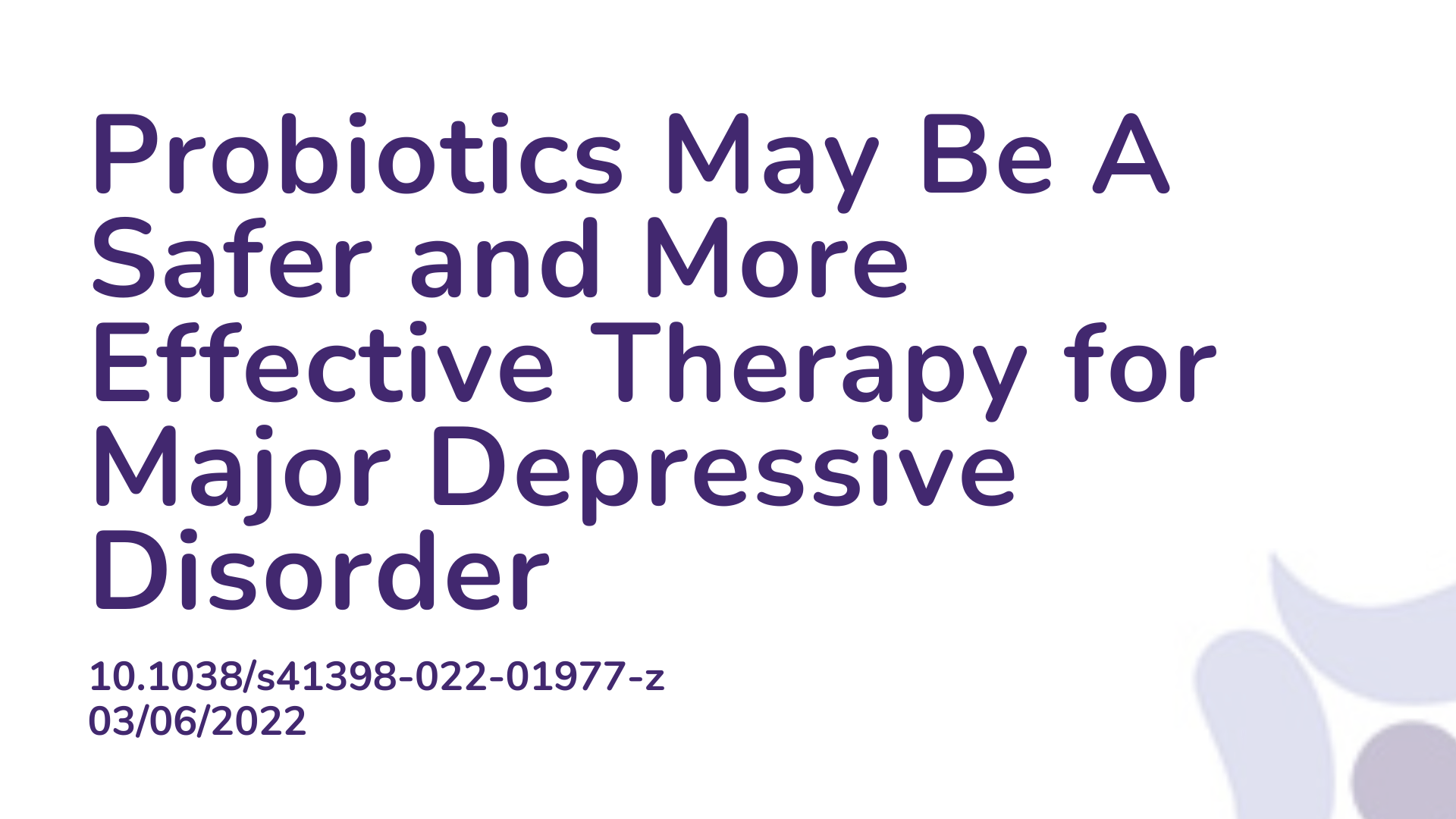Summary:
More efficient treatment therapies for psychiatric disorders such as major depressive disorder (MDD) is urgently needed, as over 60% of patients currently taking anti-depressant medication do not respond well and 30% of patients are resistant to the medication. A recent study demonstrated that probiotics may reduce depressive symptoms in patients suffering from mental health illnesses. Thus, the authors of this study have aimed to assess the role of probiotics in MDD. The study was a double-blinded randomized-controlled trial, consisting of a four week probiotic therapy for depressed patients, as well as a placebo group. Outcomes were measured via a depression rating scale based on symptoms, as well as microbiome profiling and neuroimaging of the gut-brain-axis. The probiotic group showed that after four weeks their levels of Lactobacillus increased, which was also associated with decreased depressive symptoms. This research highlights the relationship between the human gut and brain, particularly in MDD, and emphasizes that probiotic treatment may be a safer and more effective therapy for MDD.
Abstract:
A promising new treatment approach for major depressive disorder (MDD) targets the microbiota-gut-brain (MGB) axis, which is linked to physiological and behavioral functions affected in MDD. This is the first randomized controlled trial to determine whether short-term, high-dose probiotic supplementation reduces depressive symptoms along with gut microbial and neural changes in depressed patients. Patients with current depressive episodes took either a multi-strain probiotic supplement or placebo over 31 days additionally to treatment-as-usual. Assessments took place before, immediately after and again four weeks after the intervention. The Hamilton Depression Rating Sale (HAM-D) was assessed as primary outcome. Quantitative microbiome profiling and neuroimaging was used to detect changes along the MGB axis. In the sample that completed the intervention (probiotics N = 21, placebo N = 26), HAM-D scores decreased over time and interactions between time and group indicated a stronger decrease in the probiotics relative to the placebo group. Probiotics maintained microbial diversity and increased the abundance of the genus Lactobacillus, indicating the effectivity of the probiotics to increase specific taxa. The increase of the Lactobacillus was associated with decreased depressive symptoms in the probiotics group. Finally, putamen activation in response to neutral faces was significantly decreased after the probiotic intervention. Our data imply that an add-on probiotic treatment ameliorates depressive symptoms (HAM-D) along with changes in the gut microbiota and brain, which highlights the role of the MGB axis in MDD and emphasizes the potential of microbiota-related treatment approaches as accessible, pragmatic, and non-stigmatizing therapies in MDD.
Article Publication Date: 03/06/2022
DOI: 10.1038/s41398-022-01977-z



